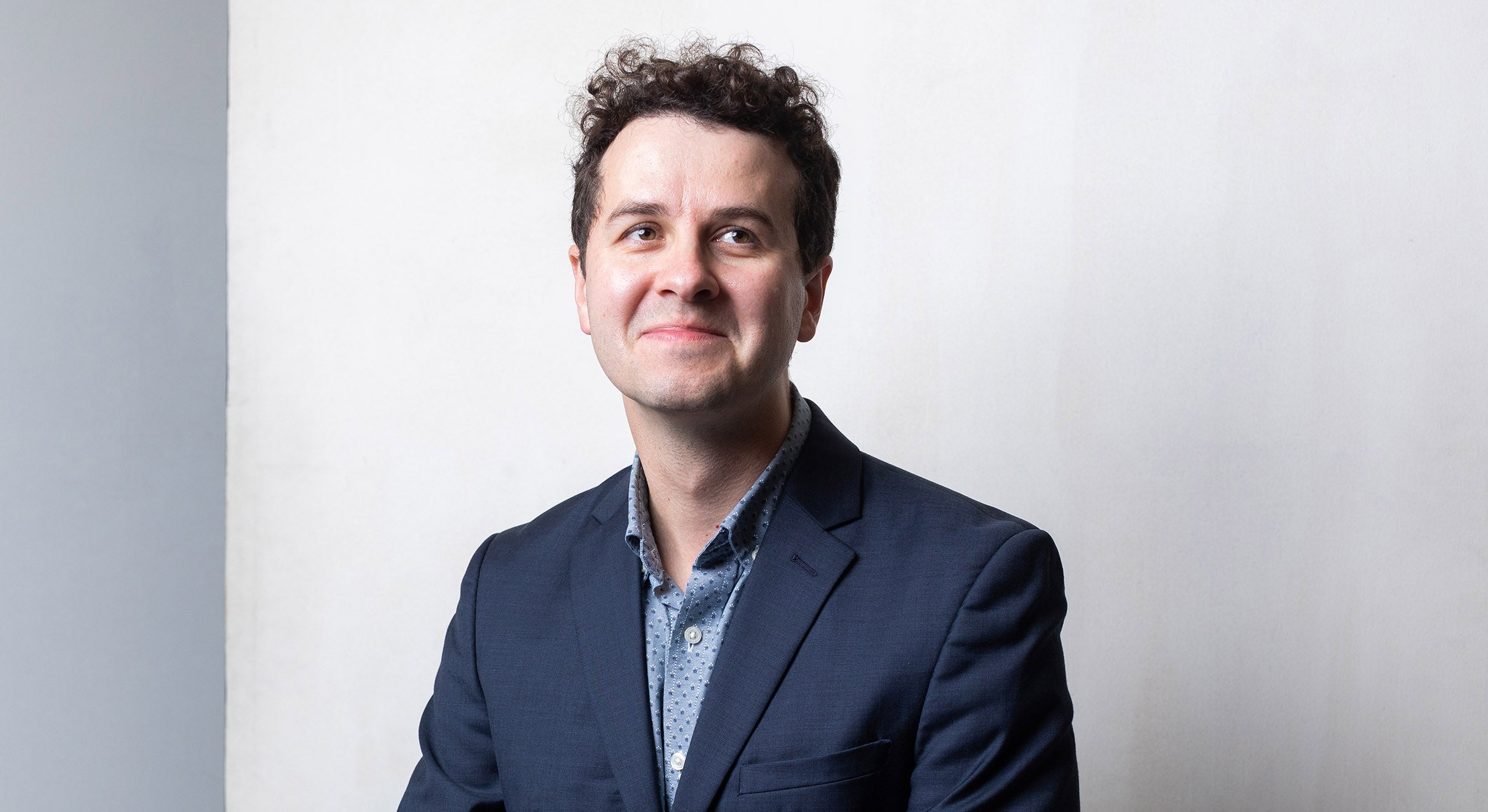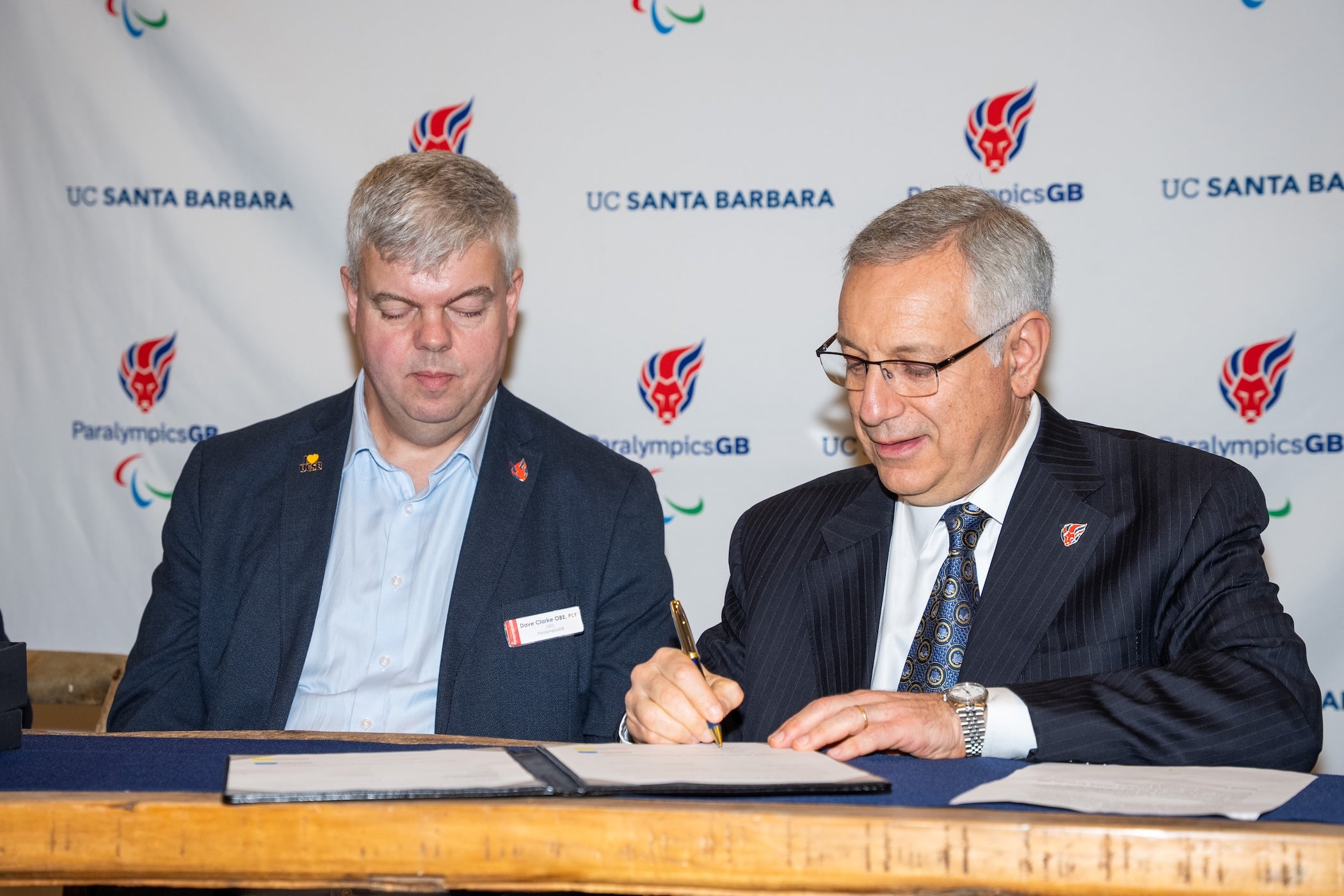
Reginald Golledge, 71, an internationally recognized scholar and professor of geography at UC Santa Barbara for more than three decades, died at home on May 29, according to an announcement by the Department of Geography. An informal memorial will be held at 1 p.m. on Saturday, June 6, at the UCSB Faculty Club.
Golledge, who began teaching at UCSB in 1977, was a pioneer in the study of behavioral human geography. He was the recipient of numerous national and international awards and accolades, and was named Faculty Research Lecturer for 2009, the highest honor the UCSB faculty bestows on one of its own.
"Professor Golledge was a highly respected and beloved member of our faculty, and our campus community will miss him dearly," said UCSB Chancellor Henry T. Yang. "His innovative research in behavioral geography and spatial cognition was internationally recognized. Although his eyesight was impaired, Reg was a true visionary who always saw great possibilities and provided the insight and leadership to take advantage of them and help others. We have lost a model teacher and a superb scholar –– a giant in his field –– and our hearts go out to his family, his students, and his colleagues."
Said Oliver Chadwick, professor and chair of geography: "Professor Golledge was a founding member of our department, a prodigious scholar, a leader in the field of human geography, and an inspiration to his students. His fortitude in the face of physical adversity was legendary, and the academic legacy that he leaves behind has made the department a stronger unit, the university a more prestigious institution, and geography a richer discipline."
In announcing the Faculty Research Lecturer award in March, the UCSB Academic Senate noted that Golledge "has made extraordinary contributions to science, and created at least three distinct subfields of geography." The senate also credited Golledge with leading the Department of Geography to its current position as one of the top programs in the country, and called him "one of the world's leading forces for interdisciplinary research within his field and within academia in general." A behavioral geographer, Golledge was particularly interested in spatial cognition, cognitive mapping, spatial knowledge acquisition, spatial abilities, and special decision-making and choice behavior.
When a degenerative disease of the optic nerve caused Golledge to lose his eyesight in the early 1980's, he turned his research attention to the field of disabilities geography. He and his colleagues developed the UCSB Personal Guidance System, an innovative mobility system that combines spatial cognition, the science of geographic information systems, and support for people with physical limitations, including impaired vision. The success of this project has led to the launch of similar efforts around the world.
Golledge published extensively in several fields, including geography, regional science, and cognitive psychology. He wrote or edited 16 books, as well as 100 chapters for other books. More than 150 of his papers have appeared in refereed academic journals and other publications, such as technical reports and book reviews.
Golledge served as editor of the journal Geographical Analysis, and was a founding editor of the journal Urban Geography. He served on the editorial boards of the Annals of the Association of American Geographers, The Professional Geographer, Tijdschrift Voor Economische in Sociale Geografie, Environment and Behavior, and The Journal of Spatial Cognition and Computation. In addition, he was a reviewer for many different journals, as well as for the National Science Foundation, the National Institute of Justice, the National Institutes of Health, the Canada Council, the Australian Research Grants Council, and the European Science Foundation.
Golledge received numerous awards and honors over the course of his career, including an honorary Ph.D. from Göteborg University in Sweden, and an honorary law degree from Simon Fraser University in Canada. In addition, he was a Fellow of the American Academy of Arts and Sciences, the American Association for the Advancement of Science, and the Regional Science Association International. Other accolades include the Institute of Australian Geographers Gold Medal, the University Consortium of Geographic Information Sciences Researcher of the Year Award, the Grosvenor Medal for Geographic Education, the Lifetime Achievement Award from the American Association of Geographers, and the UCSB Outstanding Graduate Mentor Award.
As a more formal memorial to Golledge, the geography department will host a special colloquium in his honor at the beginning of fall quarter. A dinner will follow, and the campus community will be invited to attend.
Golledge is survived by his wife, Allison Golledge; by their children Bryan and Brittany; by daughters Stephanie and Linda from his previous marriage; and by his brothers John and Barry Golledge.



